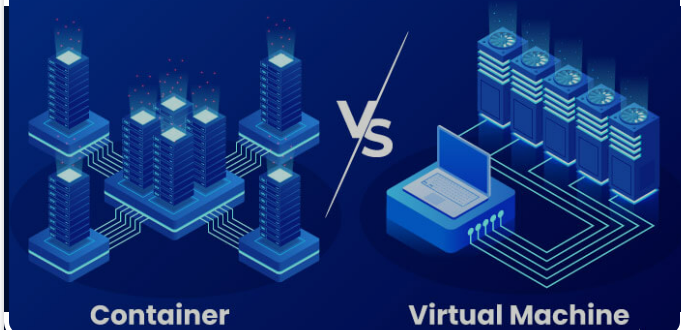Virtual Machines vs. Containers: What’s the Difference?
 Surya Prakash Chakrawarti
Surya Prakash Chakrawarti
Hey everyone! 👋 In today’s DevOps, we're diving into the world of Virtual Machines (VMs) vs. Containers – a hot topic in the tech world! 🌍 Whether you’re just starting your tech journey or you're a seasoned pro, understanding the differences between these two technologies can help you choose the right one for your projects.
What are Virtual Machines (VMs)? 🖥️
Think of a Virtual Machine like a “mini-computer” inside your actual computer. Each VM runs its own operating system (OS) and operates independently. They use a software called a hypervisor to manage these virtual environments, which means you can run Windows on one VM, Linux on another, and both can coexist on the same physical hardware!
Pros of VMs:
They offer complete isolation since each VM has its own OS.
Ideal for running multiple operating systems on one machine.
Great for legacy applications that need full system environments.
Cons of VMs:
VMs are heavy on resources (RAM, CPU, storage) since each needs its own OS.
Slower startup time because of the OS overhead.
What are Containers? 🐳
Containers are like “lightweight VMs.” Instead of virtualizing an entire operating system, containers share the same OS kernel with the host but keep the application, its dependencies, and configurations isolated. Tools like Docker and Kubernetes are used to manage containers, and they are popular because they’re lightweight, fast, and portable.
Pros of Containers:
They’re lightweight because they don’t need their own OS.
Super fast to start and stop compared to VMs.
Great for modern microservices architecture (breaking down apps into smaller services).
Cons of Containers:
They share the host’s OS, so they aren’t ideal when you need different operating systems running side by side.
Slightly less isolated compared to VMs.
When Should You Use What? 🤔
Use VMs when you need full OS isolation or need to run different operating systems on the same machine.
Use Containers when you want something lightweight, fast, and scalable, especially for cloud-native apps or microservices.
So, that’s the breakdown, folks! Whether you're building cloud infrastructure or deploying apps, knowing when to use VMs or containers is key. Which one do you prefer – VMs or containers? Let me know in the comments!👇
Subscribe to my newsletter
Read articles from Surya Prakash Chakrawarti directly inside your inbox. Subscribe to the newsletter, and don't miss out.
Written by

Surya Prakash Chakrawarti
Surya Prakash Chakrawarti
A motivated and detail-oriented fresher with a strong foundation in cloud computing and DevOps engineering. Seeking an entry-level position to utilize my technical skills and grow within a dynamic organization